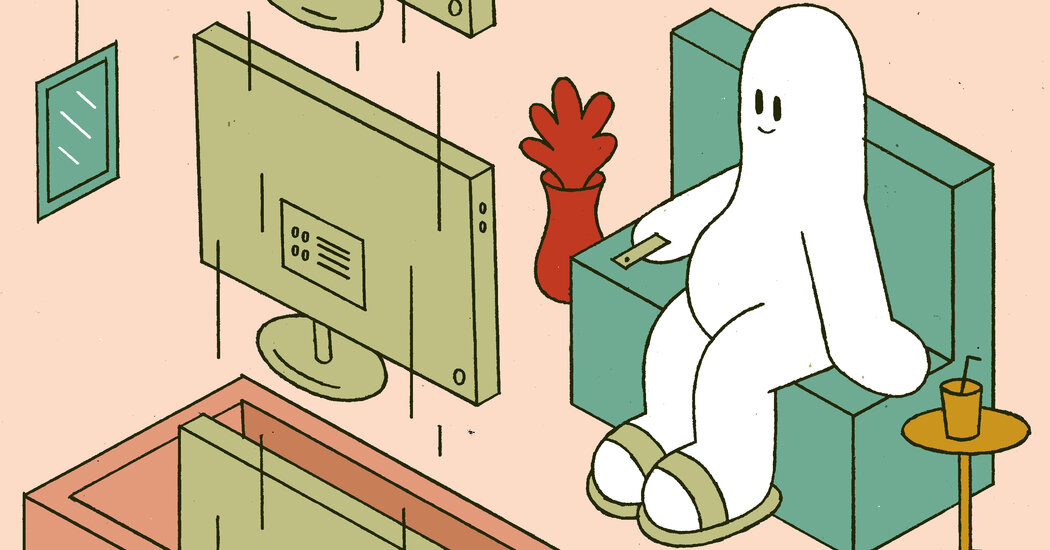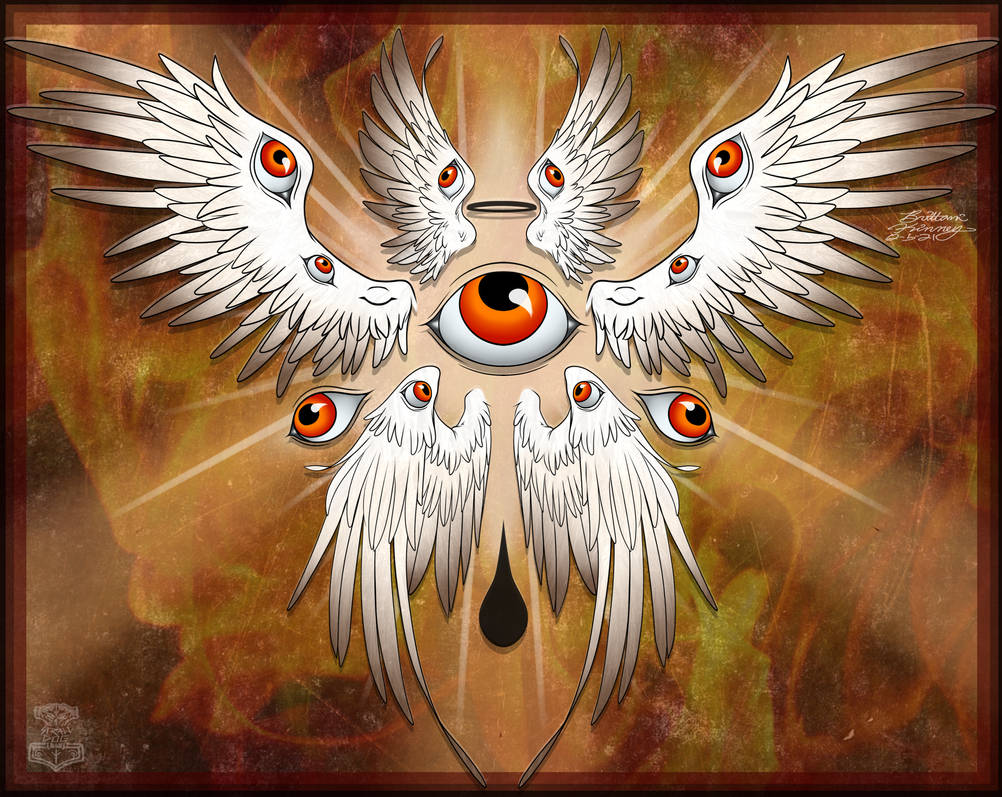Many more people are jumping from one streaming subscription to another, a behavior that could have big implications for the entertainment industry.
…
Americans are getting increasingly impulsive about hitting the cancellation button on their streaming services. More than 29 million — about a quarter of domestic paying streaming subscribers — have canceled three or more services over the last two years, according to Antenna, a subscription research firm. And the numbers are rising fast.
The data suggests a sharp shift in consumer behavior — far from the cable era, when viewers largely stuck with a single provider, as well as the early days of the so-called streaming wars, when people kept adding services without culling or jumping around.
Among these nomadic subscribers, some are taking advantage of how easy it is, with a monthly contract and simple click of a button, to hopscotch from one service to the next. Indeed, these users can be fickle — a third of them resubscribe to the canceled service within six months, according to Antenna’s research.
“In three years, this went from a very niche behavior to an absolute mainstream part of the market,” said Jonathan Carson, the chief executive of Antenna.
I really don’t understand why streaming business are so surprised. They are providing television for rent and users are renting it plain and simple.They seem to think they are entitled to lengthy subscriptions from users when in reality they aren’t providing a service that’s even stable or worth it.
The Netflix model was only ever really sustainable as long as there was only one or two providers. As long as there was only Netflix people were quite happy to just stay with the subscription because all of the content was on one convenient platform.
If I want to watch popular shows and how I have to subscribe to five or six services. Why would I do that if they are all still going to be there in a couple of months.
The Netflix model was only ever really sustainable as long as there was only one or two providers
The netflix model of streaming for cash was sustainable. The practice of gouging to where people will churn, that’s more widespread and an expected result.
The moment that I wasn’t allowed to do with my 6 accounts what I want to do, it was done for me.
if they are all still going to be there in a couple of months.
That’s the beauty of Netflix. They won’t.
They usually keep new shows at least for a year. And I suppose after that there’s no possible way of watching that content ever again, it’s lost into oblivion and certainly not available to download from a large number of locations.
Oh well
Exactly. I want to watch 1 show and when I’m done I’m cancelling. I’m looking at your paramount plus.
Paramount+ is especially bad. Tiny selection, mostly shit, costs as much as the other services.
Paramount+ ate the children’s entertainment app Noggin, which was primarily a streaming media and games app for the Nickelodeon crowd. It was commercial free, highly curated, and generally an exciting thing for the kids to open up and use to discover stuff like STEM games that were actually fun. Enshittification merged Noggin into Paramount, removed the recommendation algorithm geared towards kids, and shut down the Noggin app. Now Paramount is the only option and it’s horrible.
My wife wanted to watch the Grammys and when we saw it was on Paramount Plus we got it for 1 day. Afterwards I bought a 25 dollar over the air antennae so we can watch live CBS on the local affiliate for the once per year when we want to watch live TV. Isn’t worth it pretty much ever
they thought star trek would carry it… when that didn’t work, they shopped some of those titles around to play elsewhere and don’t even have their entire flagship franchise available anymore.
And the only new Star Trek show in the pipeline? A YA Starfleet Academy show starring Commandant Tilly.
What you mean the Star Trek streaming service with some extra stuff no on cares about?
Originally we went to get to watch RuPaul’s Drag Race but it doesn’t have the current season even though its the main attraction. Then when I saw that some Star Trek wasn’t on it we canceled within a week.
Are you outside the US? I thought Netflix got all the Trek series everywhere outside of the US, but this was back when Discovery was first coming out so my info may be out of date. I just download the stuff to avoid jumping through these hoops and avoid ads.
It’s the Yellowstone Cinematic Universe Channel. And it’s only a matter of time before they force the Star Trek shows to bridge the gap.
Users: Fine if you want me to pay a monthly fee I’ll only pay 3 months of the year.
Streaming services: ShookI would be happy to keep subscribing for a reasonable price. But I’m starting to trim the fat as they continue to price gouge.
deleted by creator
Just the fact that the author here is using the word “impulsive” in conjunction with canceling services tells me that this is just guilt based propaganda trying to put a negative spin on this. No thanks, you can fuck off.
Americans new habit: Being poor.
Millennials new impulse buy: food and rent.
It just makes economic sense.
The data suggests a sharp shift in consumer behavior — far from the cable era, when viewers largely stuck with a single provider, as well as the early days of the so-called streaming wars, when people kept adding services without culling or jumping around.
Yeah, turns out when the monopolies are eliminated, people get more competition and a better deal on the consumer end. It’s why I’ll never understand people who say streaming services became as bad as cable.
One option for slowing the churn, executives think, is to bring back some element of the cable bundle by selling streaming services together. Executives believe consumers would be less inclined to cancel a package that offered services from multiple companies.
No, I’m less likely to cancel a service that’s worth what you charge for it. Be happy you got one month out of me, and if you want more, offer me more value. Putting serialized shows out week by week doesn’t do it for me either, because I’m just going to wait until the season is done to start watching it anyway.
Price sensitivity is also a factor. Americans with a streaming subscription are spending an average of $61 a month for four services, an increase from $48 a year ago, according to a new study by Deloitte. The increase was due to higher prices, not additional services. Nearly half the people surveyed said they would cancel their favorite streaming service if monthly prices went up another $5, the study said.
Mystery solved.
Yeah, turns out when the monopolies are eliminated, people get more competition and a better deal on the consumer end. It’s why I’ll never understand people who say streaming services became as bad as cable.
I’d argue that streaming is in such a bad place right now because each streaming service has a monopoly on their own content. Sure, you could argue that studios “compete” with each other on the content they produce, but I’d argue that cable companies were a different layer of the stack entirely. Cable companies all offered the same channels and the same content, and in areas where they did overlap, competition to offer the best delivery of those channels was great. What made cable bad was that there was little incentive for companies to geographically compete. In the era of streaming, companies have little incentive to allow their content to compete across platforms.
If you ask me, every streaming platform should be broken up from their production parents, so that streaming companies can compete on what they offer, and how they deliver it. There is no incentive for the platforms themselves to compete with each other. It’s all about how hard the services can enshittify before people stop watching the content they have a monopoly on.
This is why Uncle Sam made it illegal for movie studios to own their own movie theaters 100 years ago.
Movie theaters are a great analogy to what streaming services should be
Cable companies still did the same practice too though, and even the ones that weren’t cable providers still negotiated with the providers that if you got channel A in this tier of service, you must also get channel B, and then Disney brings in a certain amount of money per channel in a given bundle every month. No matter how you slice it, even with the problems above, what we’ve got now is better.
Copyright is a government granted monopoly.
So the fragmentation is not surprising: each economic agent used their government granted monopoly on some content to make sure nobody else could distribute that content and, because of the monopoly of copyright unlike with, for example, cooking oil or soap, nobody can set up a business that just buys it on one side from several different “factories” to sell it on the other on a single shop front.
There are lots of massive market distortions in the area of content exactly because its foundation are government granted monopolies with no obligation for fair access selling, resale or second-hand sale.
The data suggests a sharp shift in consumer behavior — far from the cable era, when viewers largely stuck with a single provider,
What a stupidly obsequious statement. You didn’t change providers because you couldn’t. It wasn’t until satellite TV took off in the late 90s that people started having options for more than one subscription TV provider.
And now these financial geniuses are talking about bundling, when the whole reason this “problem” exists in the first place is because all of them yanked their content off Netflix to start their own streaming channels in the belief that they could be as profitable and as successful. Maybe they should try listening to what consumers want?
I prefer the weekly release schedule of shows. It’s something to look forward to and something to talk about week to week. A lot of people don’t want to hear spoilers either. Releasing all at once leads to that.
I do think there are those who would subscribe instantly instead of waiting for all shows to be released. Not everybody, but enough of them to stay for two to three months instead of just one and done.
The subtle corporate dick sucking of using “impulsive” against the cancellation of the thing and not the impulsive purchase of the thing.
The NY times can go fuck itself.
It could fit.
Each subscription is carefully planned based on what shows the family wants to watch.
Each cancellation is on a whim. “Hey, the monthly bills are too high. Are we done with [service]?”
It doesn’t make any sense for somebody that “carefully plans” their subscription to be surprised by the monthly bills and “on a whim” cancel.
Impulse buyers are the ones that get surprises at the end of the month.
Judging by comments here, plenty of people carefully plan subscribing for one month only: so they subscribe and immediate cancel, all planned, and then have a month to see the bunch of series and movies exclusive to that provider that they planned to see.
Viewers didn’t stick with a single provider in the cable era.
They were stuck with a single provider.
This is exactly what I came to mention. It’s not like you had a choice. The cable mafia only allowed one provider per area.
And you couldn’t even pick and choose what channels you wanted. Basic cable meant you had to pay to subsidize 100+ channels you were never going to watch. I’ve been cable free for almost 10 years and it was awesome until all the networks started taking their balls and going home by starting their own streaming services. That left less and less content that I actually wanted to see on any single service. The last straw was when they all jacked their prices way up and added commercials.
So I was thinking about subbing to Netflix again to watch something, and they had already deleted my account (it’s been about a year). So I went to my email to just try and verify that I was trying to login using the correct email address.
While doing this I found a statement from 2018. The price of Premium Netflix then was $13. Now it’s $23 I think. And they cracked down on password sharing so the service isn’t even as good, really.
Every one of these services has raised prices over and over, boiling us frogs in the pot, so it’s no wonder everyone now just subs for a month or two then bounces. It’s smart. The companies here are the stupid ones, chasing the all-mighty “line-go-up” quarterly statement MBA shit when they could have had loyal customers for years and years. I think I had a Netflix account for at least a decade or more (back when it was just mailing DVDs) until they started jumping the price by a few bucks every six months. It’s just not worth it to keep services around waiting for a show or two to come back.
Tbf, Netflix - along with Blockbuster - really was one of the pioneers in offering streaming services, when nobody else would. And it is not their fault that ISPs decided to throttle them, essentially holding their entire business hostage until they ponied up more dough, and now the content providers are doing the same. Also, most of the time they tend to grandfather people into older plans, so whatever the price is they usually (tbf, not always) tend to honor for many years in the future.
I am perpetually a year or less away from cancelling my own subscription b/c of how they continually skirt the line of pushing forward to do things like adding in “advertisements”, but then walking back to make them more bearable before they start losing customers like me in droves. So I am not exactly a full-on “fan” of Netflix, just trying to offer a balanced perspective.
They also did put in the work to make a SUPERB player, plus invested heavily in making apps for physical devices. It was only this year that I finally stopped being able to play Netflix on my 9-year-old TV, and even that has a heavy chance of being more the fault of the device itself (I mostly don’t care b/c my Chromecast still works just fine). Plus I still can do things like e.g. go workout in a gym while watching a pre-downloaded Netflix video without needing to use any of my mobile data, all that needing virtually no setup at all, unlike e.g. piracy that would require paying for a VPN and investigation into what mobile apps are available, plus constant monitoring to see if they remain trustworthy (so many famous examples of apps that got taken over from the inside by a malicious update).
Even so I may still leave it in a year or two, regardless of whether it is their fault or not, b/c I am not sure that I am getting anywhere close to the “value” for the amount that they are charging, anymore:-(. Seeing shows come out like Stranger Things gave me some hope, but then watching that same show enshittify itself immediately for the sake of chasing after profits to the exclusion of all else quickly killed it.
Though in that case I will need to research some alternatives…
Netflix […] tend to grandfather people into older plans, so whatever the price is they usually (tbf, not always) tend to honor
Where’s this? I’ve yet to hear of this happening ever.
Grandfathered Basic is $11.99/month. It used to be $9.99, they raised it last November I want to say? As long as you don’t switch off the plan, you keep it, for now.
I am so fucking confused right now. This article tries to talk about it, and even throws out the exact phrase “grandfathered into”, but it fails imho b/c after reading it I am more confused than I was before. Maybe there was a typo in it or something, or maybe the old plan was called “Basic”, instead of the new plan “Standard”… or something, but in any case unless you already had that plan from previously you cannot get onto it now. Nor do I have it, despite not having changed my plan in quite some time…
TLDR: somewhere/somehow/someway things are changing, but whether that means anything or what precisely it means is not clear, plus that itself may change too as time goes on.
You aren’t rich enough to get this…
Having used Disney and Paramount apps, I’m blown away by how much better the Netflix user experience is.
I have never seen those others but damn, that… does not sound good:-|.
I’ve practically never had a connection issue with Netflix:-). Among the shit-ton of evil companies out there, they are themselves no shining angels but… they don’t seem nearly as bad as the rest of them imho.
I mean their selection keeps getting worse, but the app is responsive and intuitive, which is more than can be said for either of those other ones.
My thoughts about Netflix are the same: I am less than happy about the content - which is beyond their control - but very happy with the apps that they offer that is totally within their control.
I think Blockbuster became a legend of failed business strategies because it didn’t offer streaming when no one else would. They waited until Netflix grabbed all the momentum for streaming to try their own, sad service.
Tbf Netflix barely managed to accomplish it either, at the start, so it must have been an extremely difficult task. Internet speeds, and more importantly reliability, were huge obstacles, but far more so were the labyrinthine rules and regulations of dealing with the content providers, which are still the top obstacles to people enjoying watching television entertainment today.
This video about it basically launched John Olivier’s career in his at-the-time new show Last Week Tonight. If you don’t want to watch it all, fast-forward to 4:08 and look at that graph, showing how Netflix was taken hostage from the ISPs for a few months until they caved and paid the additional premiums demanded (as he called it, a “mob shakedown”) - though you really may enjoy watching the rest of it after that! (warning to any capitalists that watch it: you might not be by the time you get to the end…:-P)
So… I think I disagree with your language: it wasn’t just that they “didn’t” so much as they simply “couldn’t” manage to get it done, maybe b/c they were not willing to be shitty enough? :-P
In three years, this went from a very niche behavior to an absolute mainstream part of the market
It’s because of the fracturing of the marketplace. For a while there were only a few major Film/TV streaming services. Netflix and Hulu, then HBO and Amazon, and a handful of niche or genre platforms.
Then around the pandemic time, every network and their mother decided to pull their licensing to start their own streaming platform or several. The platforms all cost as much or more as before, but you need more of them to watch the different IP you are interested in.What the studios don’t realize (or won’t publicly admit) is that instead of replacing cable TV, they have effectively recreated the video rental industry.
Mark my words. They will be switching to the car insurance model soon. You will have to pay for blocks of time. 3 mos, 6 mos, 12 mos. Probably also demand to be able to debit your bank acct. directly.
When this happens I hope PayPal or Klarna has a usable emulant I can give Netflix so they’ll fuck off AND not get power to my actual banking.
Have you tried Bittorrent with Proton VPN? It’s great for downloading Linux ISOs. I know that’s not related to this conversation, I just felt like you might want to download some Linux ISOs.
Also https://1337x.to has a great directory of Linux ISOs you can download.
It’s already 1 month or 12 months. The obvious gap-filler there is to charge more for new activations. New subscribers are $25.99 for the first month, then only $16.99/month after.
Yarr
This be the way maties!
Subscribe? You mean torrent?

Sonarr, the TV channel with everything.
Laughing in Plex server
Plex is deep in the enshitification process. I’d consider spinning up Jellyfin alongside it so you switch relatively painlessly when you decide that Plex’s bullshit has gone too far.
Even if you never reach that point, it’ll be useful to have a media server that won’t lock you out if you ever lose your Internet connection for an extended period of time
No reason they can’t run alongside each other, in case your concerned about resources or storage.
I agree with you; Plex is completely enshittified. Unfortunately, Jellyfin still lacks apps for some platforms, even though they recently added webOS (old versions included) so the situation is slowly getting better.
I couldnt get jelly to see my external drives
You can change the settings in Plex and still access it locally without Internet connection. But yeah Plex is kinda behind the curve on a lot of things, although jellyfin has it’s own issues
Plex requires an account and that account has to connect to an external Plex authentication server every so often. If that token expires and you have no internet, you will be locked out of your Plex.
You can disable auth on your local network. I’ve never experienced any issues with my authentication token expiring without having Internet, and I had my Plex server offline for months last year while I was living in a place that didn’t have Internet. For some reason though it runs noticeably shittier without Internet, it takes a long time for a video file to load.
Laughs in VLC and HDMI out
It’s the only practical option. Unless we get cable like packages (which I wouldn’t be surprised to see soon), nobody wants to pay for some 10+ subscriptions for 1-2 shows on each platform. But if you cycle a couple subscriptions every few months, it’s the same (cheaper) cost year round, but you get all the content you want.
Having described it, I think that’s probably why we’re seeing more and more shows returning back to weekly releases - that model keeps the subscribers on the hook for longer. We can always just wait till it’s done, of course, but there’s a number of factors that can pressure viewers into remaining subscribed.
It’s the only practical option.
Free streaming sites are way more practical.
You don’t want to pay $150/month for 10 different streaming services with one show you want to watch each??
I wholly agree but I think the weekly model is about more than money. It gives fans time to talk about each episode and have fun conversations speculating on what comes next. I much prefer that. When 10 episodes are released at once, people binge it over a weekend and the buzz is gone a month later. Single episode releases make for a ton of free word-of-mouth marketing
The Hulu/Disney/ESPN bundle already exists as a prototype, but I’m sure it’ll go much further from there
Americans are getting increasingly impulsive about hitting the cancellation button on their streaming services
GOOD.
I’ve been waiting for the services to start requiring a year commitment or something equally dumb to prevent this behavior. I subscribe under two conditions : There is something I want to watch, and all the episodes are available. Once I’ve finished the content I subbed for, what is my incentive to stick around, exactly?
Unfortunately for streamers they can only churn out a season of my favorite shows every 2-3 years, and I’m not really about paying for availability to content that doesn’t interest me. Especially while those rates have doubled and tripled.
Cancelled all services a couple months ago that offer an ad+sub tier. I’m ok with ads for free or sub, but mix them and that kind of greediness like cable TV i can’t abide. It’s given me more time for other hobbies I’d rather be doing anyways.





















